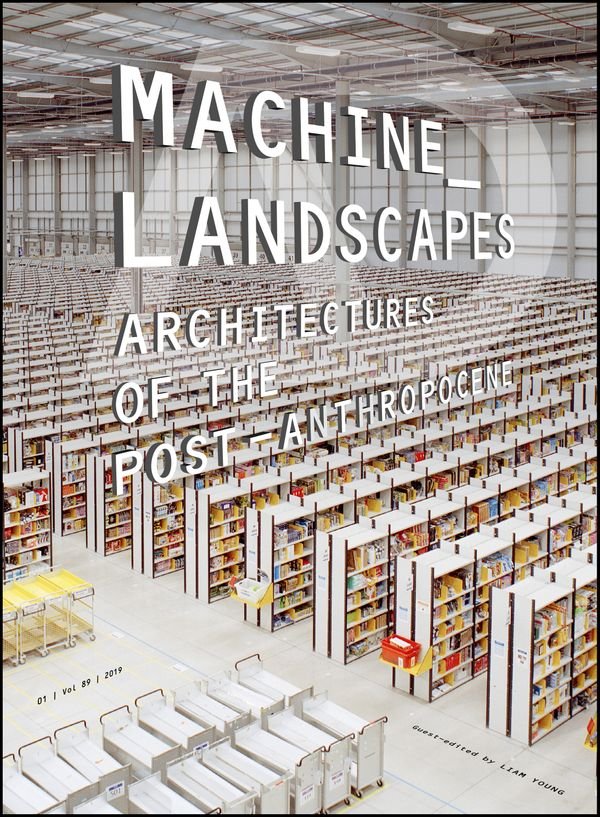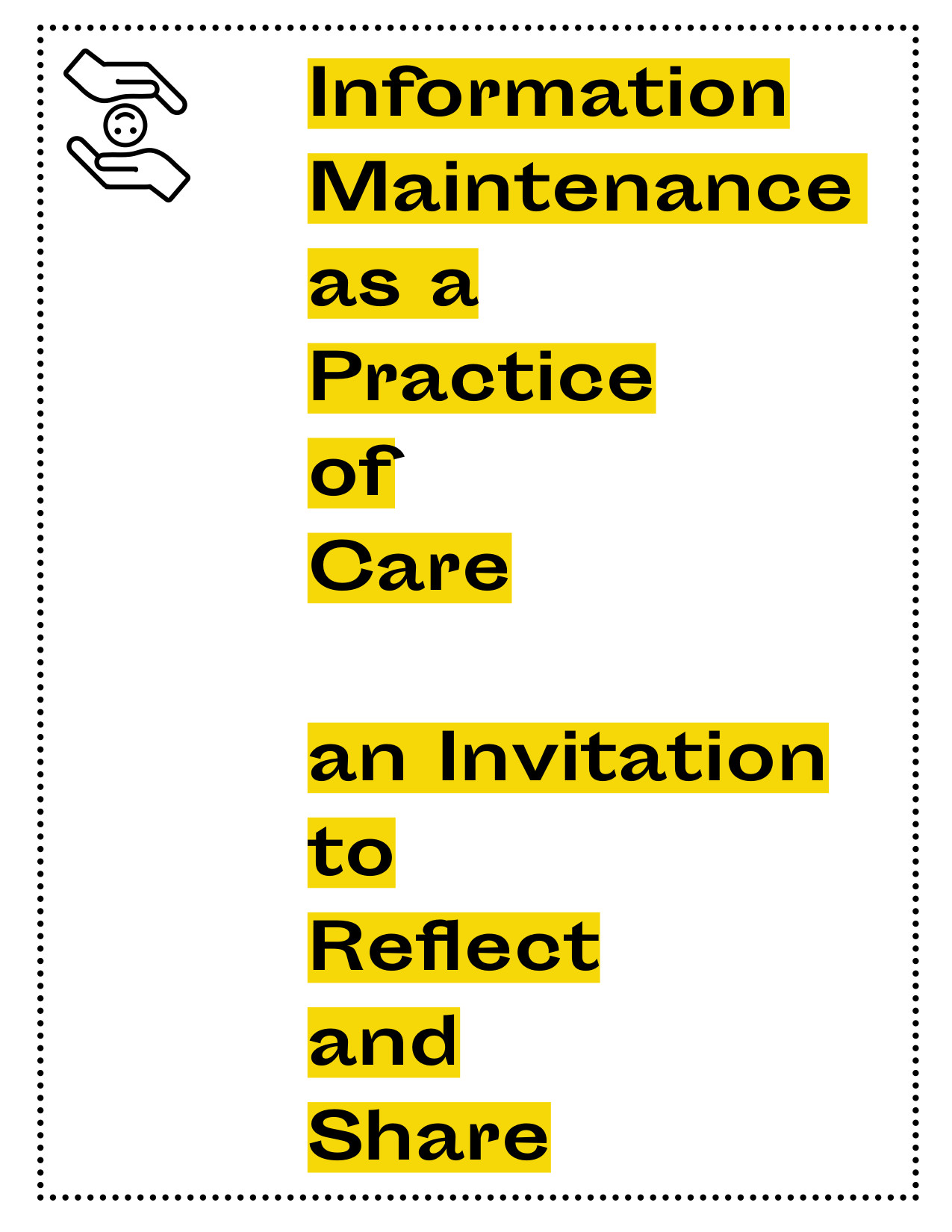Architectural Design, 89(1): Machine Landscapes: Architectures of the Post‐Anthropocene (2019)
Filed under magazine | Tags: · anthropocene, architecture, data center, design, infrastructure, machine, media infrastructure

“This issue of Architectural Design (AD) discusses how the most significant architectural spaces in the world are now entirely empty of people. The data centers, telecommunications networks, distribution warehouses, unmanned ports, and industrialized agriculture that define the very nature of who we are today are at the same time places we can never visit. Instead, they are occupied by server stacks and hard drives, logistics bots and mobile shelving units, autonomous cranes and container ships, robot vacuum cleaners and internet-connected toasters, driverless tractors and taxis.
This issue is an atlas of sites, architectures, and infrastructures that are not built for us, but whose form, materiality, and purpose are configured to anticipate the patterns of machine vision and habitation rather than our own. We are said to be living in a new geological epoch, the Anthropocene, in which humans are the dominant force shaping the planet. This collection of spaces, however, more accurately constitutes an era of the Post-Anthropocene, a period where technology and artificial intelligence now compute, condition, and construct our world. Marking the end of human-centred design, the issue turns its attention to the new typologies of the post-human, architecture without people, and our endless expanse of Machine Landscapes.”
Contributors: Liam Young, Benjamin H. Bratton, Trevor Paglen, Adam Harvey, Jenny Odell, Geoff Manaugh, Ben Roberts, Jesse LeCavalier, John Gerrard, Rem Koolhaas, Ingrid Burrington, Xingzhe Liu, Merve Bedir, Jason Hilgefort, Simone C. Niquille, Tim Maughan, Clare Lyster, Alice Gorman, Ian Cheng, Cathryn Dwyre, Chris Perry, David Salomon, and Kathy Velikov.
Edited by Liam Young
Publisher Wiley, January/February 2019
Open access
ISSN 0003-8504
ISBN 9781119453017
144 pages
Information Maintenance as a Practice of Care (2019)
Filed under white paper | Tags: · care, information, information maintenance, infrastructure, maintenance, media infrastructure, technology

“If information is to be useful over time, something more than preservation is required: it must be carefully maintained. The authors of this paper, all participants in what we call “information maintenance,” came together because of a deep commitment to recasting our work in these terms and infusing it with practices, relationships, and ways of thinking and being that represent a coherent ethic of care.
In this introductory document, we seek to identify both who information maintainers are and who else would be particularly welcome in embracing and supporting information maintenance. We define our key terms of maintenance and care and discuss how they might be practiced, sometimes offering examples to illustrate our points.”
By Amelia Acker, Hillel Arnold, Juliana Castro, Scarlet Galvan, Patricia Hswe, Jessica Meyerson, Bethany Nowviskie, Monique Lassere, Devon Olson, Mark A. Parsons, Andrew Russell, Lee Vinsel, and Dawn J. Wright
Publisher Zenodo, 17 June 2019; corr., 20 June 2019
Creative Commons BY 4.0 International License
29 pages
Culture Machine, 18: The Nature of Data Centers (2019)
Filed under journal | Tags: · cloud computing, data, infrastructure, internet, media, media infrastructure, storage, technology

“This special issue of Culture Machine brings together scholars from a broad range of disciplines such as anthropology, architecture, media and communication studies, and fine arts, who have engaged with data and cloud infrastructures in their academic or artistic work. Taking data centers as technological apparatus as a starting point, this issue aims to discuss the cloud’s philosophical, political, social, and environmental impacts and maps the diverse sociotechnical assemblages which emerge in the course of cloud infrastructuring processes. How do the infrastructures of the cloud integrate into local political contexts and industrial landscapes? How do the cloud’s technologies relate to the emergence of specific forms of subjectivity, sociality, and urbanity? How can the barely visible and secret industrial spaces of the cloud be made visible and opened up for public engagement? And what does the study of data centers tell us about our current social moment?”
Contributions by Adam Fish and Bradley L. Garrett, Alix Johnson, Anthony M Levenda and Dillon Mahmoudi, Vicki Mayer, Matt Parker, Anne Pasek, A.R.E Taylor, Julia Velkova, Asta Vonderau, Sean RM Willett.
Edited by Mél Hogan and Asta Vonderau
Publisher Open Humanities Press, March 2019
Open access
HTML, PDFs (updated on 2019-7-8)
Comment (0)
